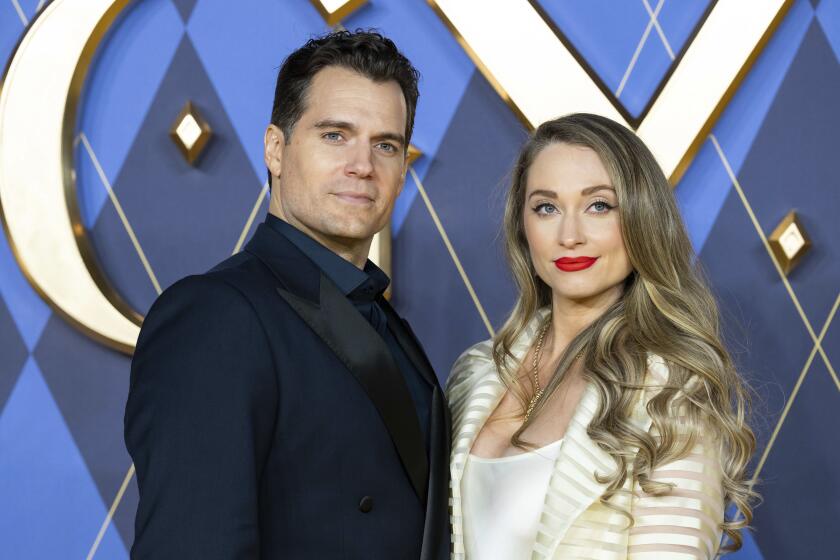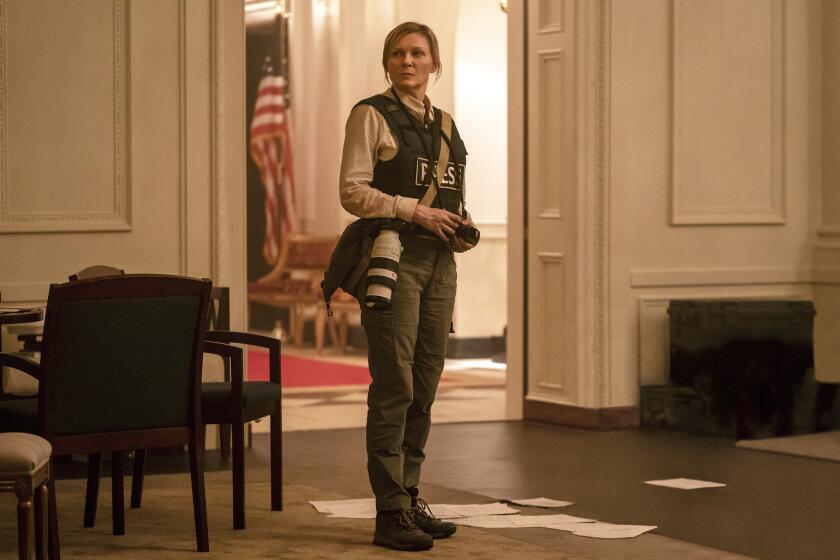Streisand revisits ‘Yentl,’ her mitzvah
It was a challenge that Barbra Streisand wasn’t sure she could handle.
Though she made her directorial debut with 1983’s “Yentl” -- the musical drama about a young Jewish woman who disguises herself as a man -- she was initially wary of taking on filmmaker duties for the cinematic adaptation of Isaac Bashevis Singer’s short story.
She even went as far as to have conversations with other directors about helming the project, including French director Claude Berri, who had made one of Streisand’s favorite films, “The Two of Us,” a touching drama about the friendship that develops between a Gentile and a young Jewish boy during World War II.
“I was frightened to do it myself,” Streisand, 66, recently acknowledged. “But I had a vision of it. I was looking for a sign whether or not to direct it.”
She found the inspiration at her father’s grave. Emanuel Streisand, who was a scholar and teacher, had died when she was just 15 months old.
“I had never been to my father’s grave -- isn’t that interesting? -- until I was 39 years old,” she said, adding that perhaps she had stayed away because it was too painful for her.
“I never had a picture with my father,” she said. “When I came home my brother sent me the picture of my arm around the tombstone. And I think it was [producer] Rusty Lemorande who said, ‘Oh, my God. Look at the picture.”
In the photo, the tombstone next to her father’s was for a person named “Anshel,” the name Yentl takes when she becomes a man.
“That was the sign,” Streisand said. “I have to direct it.”
Earlier this month, the two-disc director’s cut arrived on DVD.
The DVD features warm, engaging commentary from Streisand and Lemorande (her former assistant who produced the film with her), rehearsal footage that Streisand shot in Los Angeles from her own archives, two songs that didn’t make the cut in the original movie along with the storyboards of the numbers, as well as some deleted scenes. It also features the 8-millimeter “concept film” that Streisand shot on location in Europe to sell the movie.
Based on Singer’s “Yentl, the Yeshiva Boy,” the film revolves around Yentl (Streisand), who lives in Europe at the turn of the 19th century and wants to be a scholar and study the Torah. But women then were not permitted to study. So after the death of her father, she disguises herself as Anshel to make her dream come true.
Problems ensue when she falls in love with a fellow student, Avigdor (Mandy Patinkin), who, in turn, is in love with a beautiful young woman, Hadass (Amy Irving). But her parents won’t let him marry her, so Avigdor persuades Yentl to marry her.
After the film was released, Streisand, who co-wrote the script with Jack Rosenthal, became the first woman to win the Golden Globe for best director. The movie went on to win an Oscar for best original score, featuring the songs “Papa, Can You Hear Me?” and “The Way He Makes Me Feel.”
Revisiting the film for the new DVD “brought back a lot of memories and the challenges of getting the film made,” Streisand said. “We didn’t have any money. We didn’t have a video camera. I think it was an 8-millimeter film camera. When I would interview actors, I would also have them do scenes in front of my little 8-millimeter camera to see how they responded in front of a camera, whether they would be natural or freeze up”.
Streisand bought the rights to the story in 1968, the year she made her Oscar-winning film debut in “Funny Girl.” However, she was told that audiences didn’t want to see her playing another Jewish character. But Streisand felt that it was a “universal story of the limits that are put upon a woman -- just because she wanted an education, she had to dress as a male. It was as simple as that.”
Much like her character, Streisand said, she struggled with gender bias when trying to get the movie made. She hid the fact that she had co-written the script by not putting her name on it. “I was afraid if they saw my name on it, [people in Hollywood] wouldn’t like it,” she admitted.
Streisand even put the film’s credits at the end of the movie, which was unusual back in 1983. “In those days, the credits of a film were at the beginning. And the reason I didn’t put it on in the beginning is that I didn’t want [audiences] to be prejudiced -- ‘Oh, she directed it’ -- and have them think about it. I think it was easier for women who weren’t actresses” to become directors.
These days, she explained , people “don’t look askance” at a female director. “If it’s a female director, it’s a female director.”
It’s been years since Streisand last worked as a director, on 1996’s “The Mirror Has Two Faces” (she also starred opposite Jeff Bridges in the romantic comedy).
“I’m not that ambitious,” she said. “I don’t like to do one movie after another.”
But she still hopes to direct the film version of Larry Kramer’s early AIDS drama, “The Normal Heart.”
“I’ve been working on it since I saw the play in 1985 and then did a screenplay in 1995. I’ve been trying to get it made,” Streisand said. But this time, all of her work will be behind the camera. “I look forward to not being in my next movie -- just directing. I really care much more about the other actors’ performance than I do my own.”
--
More to Read
Only good movies
Get the Indie Focus newsletter, Mark Olsen's weekly guide to the world of cinema.
You may occasionally receive promotional content from the Los Angeles Times.







